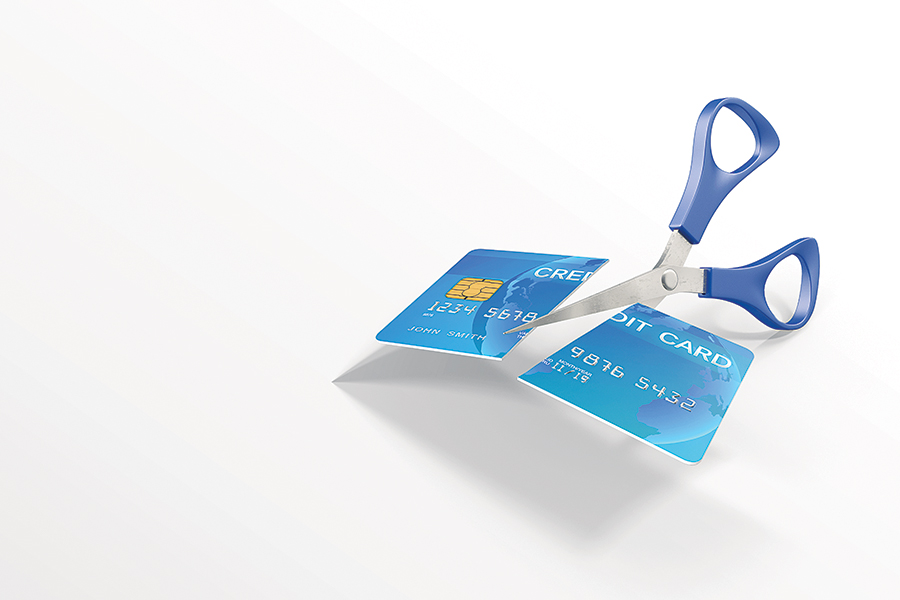Are You Recession Proof?
Starting out, moving up, or planning for the next generation? Boston’s leading financial experts share secret tips and inside tricks for saving and spending like a wiz in the new corona-conomy.

Photo via PM Images/Getty Images
Starting Out
Moving Up
Retiring Right

Photo via Twomeows/Getty Images
STARTING OUT
Congratulations! You’ve finally scored your dream job and moved out of your parents’ house, only to realize there’s a much longer, more complicated journey ahead of you: the rest of your life. Your biggest expenses are probably rent, the occasional gourmet takeout order, a gym membership, and a handful of streaming subscriptions, because you’re a hardworking adult now and shouldn’t have to choose between Netflix, Hulu, and Disney+, right? Your biggest question is probably how to start saving for the future—and what the heck your future is going to look like in the first place.
If 2020 has taught us anything, though, it’s that we can never really know what the future holds. What we can do is be prepared for whatever life throws our way. At this point, maximizing savings and minimizing expenses should be a top priority, especially in the earliest stages of your financial journey. “This first decade of your career should be all about working on cash flow, paying off debt, saving a minimum of 10 percent, and learning how to spend less than you make,” says Jennifer Street, chief operating officer of Claro Advisors. That way, the next time a freak global pandemic shuts down the economy and grinds everything to a halt, you’ll be ready.
If you look in the mirror and think it’s way too early to start saving for retirement, think again. “The power of compounding over periods of years is profound, and every dollar you can save in a tax-sheltered or tax-deferred account in your twenties will work much more powerfully for you over the long term,” Street says. So go ahead and open up that 401(k), take the reins on whatever debt you have, and make sure you have a properly stocked rainy-day fund. Because as the old adage goes, a penny saved is a penny earned. The good financial habits you put into practice now will pay dividends down the road.
Ready To Hire Your First Financial Planner?
Ideally, this relationship will be among the longest and most productive of your life—choose wisely by asking these five questions before you commit.
What Kinds of Clients Do You Work with?
For your first adviser, select someone who deals with people in your socioeconomic stratum. “When you’re starting out, you don’t need some well-known planner who is used to positioning $5 or $10 million portfolios,” says certified financial planner Susan Kaplan, founder of Kaplan Financial Services in Newton. “Forget the name, forget the prestige, forget all of that. You want someone whose clients are similar to you.”
How Do You Get Paid?
It’s the million-dollar question. There are a few models here, ranging from charging a percentage of assets under management, to commissions on financial and insurance products sold, to good old-fashioned hourly fees, so make sure it’s clearly spelled out from the get-go. “It’s a screaming red flag if they say, ‘If you do well, I do well,’” Kaplan says. “That’s not an answer—it’s a vague description.”
How Do You Communicate with Clients?
There isn’t a right or wrong answer here—it all boils down to what makes you feel most comfortable, whether that’s an annual, semiannual, or quarterly status call. Kaplan advises steering clear of financial planners who give open-ended answers like “When you call me, then I look at your portfolio”—that means there isn’t continuous follow-up. “If you’re going to hire someone to look once a year, that’s fine,” she says. “Just understand that someone else has to pay constant attention, and that someone is you.”
Have There Been Any Complaints Against You?
If a financial adviser is properly licensed, that means their complaint history can be easily researched on the SEC’s Investment Adviser Public Disclosure or FINRA’s Broker-Check (both of which have easy-to-use online search engines). “If you find any history there, just move on with your search,” Kaplan recommends. “Anyone can rationalize anything and I’m sure there are falsely accused financial advisers, but as the client, you won’t have the facility to know whether their explanation is real or not.”
How Can I Stay Involved?
The reason you hire an expert is to totally defer to their advice, right? Wrong. “Your job is to learn, not simply turn over your assets to somebody else,” Kaplan says. “You can’t turn your life over to somebody who has different values than you.” Get to know each other, share your long-term goals, and always remember—ultimately, they work for you.

Photo via Getty Images
Got Debt?
Here’s how to get rid of it faster and get back to living your best life.
Prioritize Higher Interest Rates
Can’t decide whether to throw money at your car loan, at 5 percent APR, or your credit card bill, at 24 percent APR? Go with the latter—the higher the interest rate, the more it’ll cost you to hold onto. “You’re losing money on interest faster with the credit card debt, so pay that down first,” financial adviser Paul Litchfield suggests.
Consider the “Rollover”
Some credit cards will advertise balance transfers at a promotional 0 percent interest rate for a certain time period. If you’re ready to get serious about paying off your favorite Visa, it may be worth looking into “rolling over” your balance from the old account to the new card and paying it off as aggressively as possible before the grace period ends, Litchfield says.
Refinance Student Loans
Taking advantage of lower interest rates may make it easier to pay off your educational expenses faster—and save you money. But every situation is different, so it’s important to speak to an informed financial adviser who can help you figure out the good kind of debt to take on, Litchfield says.
Say Goodbye to Plastic
If all else fails, the answer is simple: “Cut up your credit card,” Litchfield suggests. “If you have a problem spending, it’s really a mind-over-matter situation.”
Financial Hotline
How much do I need in my emergency fund?
“The pandemic has shown all of us what our risk tolerance is. The rule of thumb is generally to keep three to six months’ worth of expenses on hand at all times. Some people might have more, some people might have less—but after this year, maybe more people will start to realize that it’s better to keep some more liquidity in case of, say, a global pandemic. Something you can do to help build up that cushion is really take control of your spending. Ask yourself, do you care more about watching Netflix and Hulu in the short term, or do you care more about having spare cash when you need it most?”
Paul Litchfield, Financial Adviser, Litchfield Financial

Photo via Nora Carol Photography/Getty Images
MOVING UP
Go ahead and breathe a sigh of relief: All of your hard work is finally starting to pay off. Now well into your career, you’ve probably managed to make a dent in your student loans, build a decent nest egg, and purchase a home you’re proud of. You’re doing incrementally better than in your twenties and early thirties, or maybe you’re doing a lot better—the point is that your goals are more within reach than ever. Right?
Not so fast. Sure, you’re earning more than before, but this is the time of your life when you need to start thinking about the bigger picture—because whether it’s children or elderly parents, it’s not just about you anymore. Raj Pathak, managing director of wealth management at Morgan Stanley, says that now is the time to really double down with your adviser about creating a financial plan for your unique needs. “You should start thinking about not only your retirement plans, but what would happen to your family should something happen to you,” Pathak says. “This is the time you start supplementing your savings with things like life insurance and making sure you have a will in place.”
And as the markets this year have shown us, a sound financial plan should consider that things go up, things go down, and, yes, sometimes a shock to the market (ahem, COVID-19) could temporarily throw your portfolio to the wolves. “If you look at March of this year, the market dropped 40 percent in three weeks. While we haven’t fully recovered, the market has come back,” Pathak says. “A good financial plan these days takes that long-term approach. There will be periods of volatility, but even considering this year, the outlook is still reasonably good.”
No One Likes Lazy Money
You’ve worked hard enough for your dough—here’s how to make it work for you.
BEGINNER
Instead of building a nest egg in your regular savings account (which probably pays under one percent interest), consider putting a portion of each paycheck directly into a low-risk mutual fund—the kind of thing you can hang onto for years without giving it much of a second thought, suggests Street, of Claro Advisors. Bonus points if you can do so from a tax-deferred 401(k) or IRA.
INTERMEDIATE
Once you have some retirement accounts in the mix, it’s time to make sure your portfolio is properly optimized so taxes don’t inhibit your growth. “You want your most aggressive investments to be placed in tax-deferred accounts,” Street says. That means stocks and mutual funds that you expect to appreciate more than 5 percent over the long term should be held in a 401(k) or IRA to avoid a 15 percent capital gains tax on those investments when they’re sold. Lower-risk investments such as fixed-income and money-market funds, meanwhile, can stay in your everyday taxable accounts.
ADVANCED
So you’ve maxed out your tax-deferred retirement accounts, worked with your financial adviser to make sure your portfolio is properly diversified and optimized for long-term growth, and made sure your kids have some money set aside for college—you’re basically a financial wiz at this point, right? Almost. The next step is to start exploring what Street calls “private investments” such as real estate or business investing. When you get to this point, however, “you want to make sure you’re working with comprehensive wealth managers who make sure every dollar you make has a job.”
Money Secrets of Happy Couples
From separate bank accounts to kitchen receipt jars, three local duos dish on what makes their financial partnerships work.
Emily Neill, 50, and Dayton Neill, 49
Live in: Natick
Married for: 19 years
Careers: Headhunter and IT specialist
Secret to Success: “We each have our own individual bank accounts and credit cards but also share a joint-account credit card. Everything family-related goes on the joint card,” Dayton says. “If one of us wants to go on a shopping spree, that goes on our individual card and we have to pay it off—that way neither one of us ever nags the other over credit card charges,” Emily says. “We have never fought about money, and we would never do it differently.”
Matthew Stowe, 45, and Christopher Balerna, 42
Live in: South End
Together for: 14 years
Careers: Lawyer and project manager
Secret to Success: “Earlier on in our relationship, I cared a lot more about how much each of us was paying,” Stowe says. “But at that age, a couple hundred bucks was, relatively, a lot more money to me in my early thirties than it is now in my mid-forties. These days, we don’t really keep track of dinners and day-to-day stuff. We do a rough-justice thing for major expenditures like trips, and we’ve always kept a jar in the kitchen for receipts for joint expenditures. But as the years go on, we use the jar less and less.”
Tia McPherson, 52, and Lucian McPherson, 48
Live in: Milton
Married for: 13 years
Careers: Interior designer and real estate developer
Secret to Success: “There’s no magic formula, but we like to keep separate accounts for separate things: a savings account, a travel and home renovations account, and a day-to-day account to pay our bills from. By saving bit by bit for larger goals, there’s less sticker shock involved when it’s time to renovate or take a vacation,” Lucian says. “We just completed an entire renovation of our home and garage, which we absolutely love,” Tia says. “We made [saving for] that a priority and now we can finally enjoy it—and start saving for travel again.”
Financial Hotline
Should I Be My Own Online Trader?
“The answer is…you can, but you probably shouldn’t. We’re seeing more and more online trading with self-directed and no-fee accounts like Robinhood, and I think it has to do with there not being much sports betting going on this year because of the pandemic. The issue is when people treat these portfolios as speculative gambling on things they read about in the media, and not necessarily things that should be in a long-term investment portfolio. There’s a difference between people betting on Tesla and Peloton versus betting on Johnson & Johnson and 3M. Normally, a financial adviser sets up parameters in the financial plan. Build up your emergency savings, max out your retirement accounts, then treat these self-directed accounts like your fun money, using absolutely no more than 10 percent of your assets. They’re just risky. Let me put it this way: People always tell you about the wins, but they never tell you about the losses.”
Antonio Sordillo, Certified Financial Planner, Evergreen Financial Partners of Raymond James

Photo via Romolo Tavani/Getty Images
RETIRING RIGHT
This is it: You’ve worked hard, invested wisely, and put something aside for a rainy day—now it’s time to see if your finances can carry you through this next chapter of life: retirement. But as you get ready to switch from asset accumulation to asset enjoyment, you’re probably concerned with not only whether you have enough saved, but also what happens to your loved ones when you’re gone. And considering the way 2020 went, those on the threshold of retirement can’t be blamed for feeling a little spooked right now.
One of the worst things you can do at this time, according to Raj Sharma, managing director of the Sharma Group at Merrill Lynch Private Wealth Management, is be complacent. Historically, the benchmark for retirement planning has been to keep your portfolio in 60 percent bonds and 40 percent stocks. Yet with interest rates at historic lows, the average United States Treasury bond trades at a meager 0.7 percent—which isn’t even enough to keep your savings abreast with inflation, not by a long shot. With bonds paying such low returns, “the 60/40 paradigm is dead in the water,” Sharma says. However you switch up your asset mix, whether it’s by adding in more dividend-paying stocks or turning to alternative sources of income such as real estate, Sharma says, “2020 is a good time to recalibrate your portfolio, your asset allocation mix, your risk, and ask if you’re well positioned for the next 20 or 30 years.”
There are, after all, many equities in the stock market to be excited about right now, Sharma says. Innovations such as cloud technology, 5G, automation, robotics, online economies—things he calls new-frontier technologies—are poised for growth. “One day when there is a vaccine or COVID goes away, we’re going to have a Roaring Twenties like there was a century ago,” Sharma says. “The amount of money that governments have pumped into the economy this year, we have not seen this type of infusion since World War II. There’s more liquidity and opportunity than ever. So I’m erring on the side of optimism.”
Screw Over the State, Not Your Kids
When you began your financial planning journey, the idea of having hundreds of thousands or even millions of dollars in assets might have seemed far away, but now that you’ve paid off your house and have a nice, plump investment portfolio, you suddenly find yourself confronted with a whole new set of problems: how to make sure your wealth passes to your children, while losing as little as possible
to estate taxes.
Get help sooner than later.
Massachusetts is one of the few states that taxes a decedent’s entire estate once they hit the $1 million threshold (and not just whatever is in excess of that million). Leave $999,999 to your loved ones and there’s no estate tax; leave $1,000,000 and they can expect to get a hefty 16 percent bill on the whole pot. “This is why you also need to go to an estate planning attorney,” says Marcel Quiroga, a retirement management adviser and cofounder of TQM Wealth Partners. “We work side by side with them to make sure your estate plan reflects what you’re trying to accomplish.”
Start making gifts.
A good way to get your estate below that million-dollar threshold is to make what are called “inter vivos gifts” to your children during your lifetime, Quiroga suggests. Just be exceedingly clear with your beneficiaries about how you expect them to use their inherited wealth—whether you want them to save for their kids’ college funds or build their own portfolios, or if you’re content to see them blow it on a new car. “Have family meetings to talk about your values and expectations,” she says. “Even if you’re not gifting significant wealth, they’ll need to learn their own money-management skills.”
Take life insurance out of the equation.
If you have a life insurance policy, Quiroga says you might consider putting it in an Irrevocable Life Insurance Trust, or ILIT—“that way the death benefit isn’t included in your taxable estate.”
Beware the Scammer
They’re out there, they’re sneaky—and they love to prey on retirees with everything to lose.
THE MEDICARE MUGGER
The Pitch: “Because of a change in Medicare coverage, you’re entitled to a refund,” or “You’ve been selected to receive free medical supplies and Medicare will cover it—we just need to confirm your Medicare number.”
What They Really Want: Your Medicare number or credit card number.
The Truth: Unless you previously called 1-800-MEDICARE about a specific matter and requested a return call, Medicare doesn’t generally call you out of the blue.
THE SOCIAL SECURITY SWINDLER
The Pitch: “If you send us a payment now, we can increase your Social Security benefits,” or “There’s an issue with your Social Security benefits and if you don’t send us a payment right now, we will bring criminal charges against you.”
What They Really Want: Your Social Security number, cash, prepaid gift cards, or any sort of difficult-to-trace currency.
The Truth: If for some reason you do owe money or have an issue with the Social Security Administration, you’ll get a letter sent through U.S. mail with instructions—which never involve purchasing gift cards.
THE PANDEMIC PROWLER
The Pitch: “We’re calling from the IRS. Would you like us to expedite your next pandemic stimulus check?”
What They Really Want: Your Social Security number or bank account numbers.
The Truth: If you really want another stimulus check, let alone one that is expedited, try calling your duly-elected United States representatives and giving them a piece of your mind.
Financial Hotline
How can I protect my life savings from getting drained if I need long-term care in the future?
“Medicaid does cover nursing care, but only if your income and assets are under a certain threshold. If you plan in advance, you can open a trust with the correct Medicaid provisions, transfer your assets into it, and then over time those assets will be excluded from the calculation of how much you have under the state guidelines. You just have to be careful, because with Medicaid there’s a five-year look-back period. After five years, there’s a large amount of protection on those assets. Which is all the more reason to jump on these things now as you transition into retirement. Just set it and forget it.”
Robert Edmunds, Certified Financial Planner and Partner, Wellesley Private Advisors


